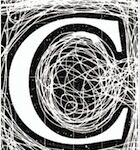
 In chapter 120 of the Chinese classic, Wen-Tzu’s Book of Pervading Mystery (通玄真經), we read: “If they are valued for what is valuable about them, then all things are valuable. If they are despised for what is worthless about them, then all things are worthless.”1
In chapter 120 of the Chinese classic, Wen-Tzu’s Book of Pervading Mystery (通玄真經), we read: “If they are valued for what is valuable about them, then all things are valuable. If they are despised for what is worthless about them, then all things are worthless.”1
So when Ursula K. Le Guin recently quipped at the National Book Awards, “I see a lot of us, the producers accepting this — letting commodity profiteers sell us like deodorant,” one has to wonder how enthusiastic that crammed room full of applauding deodorant slanderers would have been had none of them been wearing deodorant.
And, the remark stank beyond its implied dismissal of products engineered to overcome human body odor.


 You guys know I’m not a Franzen fanatic, but I feel compelled to share my thoughts on his
You guys know I’m not a Franzen fanatic, but I feel compelled to share my thoughts on his 


 When I first read the headline of the latest salivation for Tom McCarthy’s eagerly awaited novel,
When I first read the headline of the latest salivation for Tom McCarthy’s eagerly awaited novel, 
 On this day, 18 June, in the year 1178 in Canterbury, England, a group of monks reported seeing a strange “flaming torch” on the moon, which caused the moon to “writhe” like “a wounded snake.”
On this day, 18 June, in the year 1178 in Canterbury, England, a group of monks reported seeing a strange “flaming torch” on the moon, which caused the moon to “writhe” like “a wounded snake.”